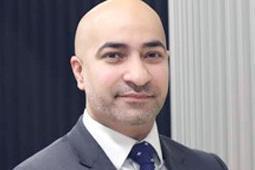London litigation firm Lincoln & Rowe recently acted for a client based in the UAE as a private prosecutor in a fraud case highlighting the devastating impact of investment fraud and the value of private prosecutions in achieving justice. The matter had been reported to the police but as steps had not been taken to prosecute, we were instructed to bring the private prosecution.

The defendant was the former founder and chief executive of a company that offered a subscription model for teachers, departments and schools. The business model was designed to procure a large number of users whether paying or not to provide opportunities for future payment and content sharing revenue streams.
The defendant promoted the company as an investment opportunity using statistics from the company’s website to demonstrate the number of users and their activity to show a growing user base of teachers as well as educational establishments.
The defendant made false representations about the company’s financial performance using forged bank statements, sales information and accounting documents which amounted to fraud by false representation contrary to the Fraud Act 2006. The scale of the defendant’s deception caused staggering losses of over £1 million to the prosecutor. The defendant’s actions represented a calculated and deliberate effort to deceive our client.
The fraudulent activity was eventually exposed when discrepancies in the company’s financials came to light. Our client questioned the authenticity of the information being provided, leading to the director’s company entering into liquidation. Lincoln & Rowe’s investigation revealed the extent of the deception, prompting the decision to pursue a private prosecution which culminated in a four-year prison sentence for the defendant.
The defendant’s four-year imprisonment is a stark reminder of the serious consequences of financial crime. However, the case does not end there.
Proceeds of Crime Act (POCA) proceedings are ongoing, with the aim of recovering funds for the defrauded victim. While no amount of money can fully compensate for the emotional, reputational and financial distress caused by fraud, these proceedings offer hope for some measure of restitution.
As a result of the ongoing POCA proceedings, the prosecutor’s name and the defendant’s name must remain anonymous.
Private prosecutions have emerged as a vital tool for victims seeking justice, particularly in cases where public authorities may lack the resources to progress a matter. In this instance, the affected investor opted for a private prosecution to ensure the case was handled with the urgency and expertise it required.
The analysis included forensic analysis of the forged documents and evidence from financial experts.
Whilst a fraudster may be less concerned about civil remedies such as a court claim and/or a bankruptcy petition, the success of private prosecutions serves as a deterrent to potential fraudsters by demonstrating that victims have alternative avenues to seek justice.
Under section 6(1) of the Prosecution of Offences Act 1985, it is open to anyone to bring a criminal prosecution. The burden of proof and standard of evidence is the same as if the case is being brought by the director of public prosecutions.
The advantages of bringing a private prosecution for fraud, misrepresentation and financial crime include:
- If the case is successful, the court can require the convicted defendant to pay the prosecutor’s costs. If there is no money available, then central funds may be used to pay the prosecutor’s costs;
- If the case is not successful, the prosecutor may still be able to claim costs from central funds if the case reached the Crown court;
- The risk of having a costs award made against the prosecutor is low as costs are rarely awarded against a prosecutor;
- A private criminal prosecution will generally be heard more quickly than a civil case;
- The criminal court has the authority to impose penalties not open to civil courts, including confiscation orders, imprisonment and a criminal record.
The Office for National Statistics showed that there were more than 3.5 million incidents of fraud in the year ending June 2024.
The outcome of this case underscores the importance of private prosecutions. When conducted with integrity and precision, they offer a powerful means of achieving accountability and protecting victims.
As more individuals and businesses become aware of private prosecutions, they are likely to play an increasingly prominent role in the fight against financial crime.
Dipesh Dosani is founding partner of Lincoln & Rowe






























